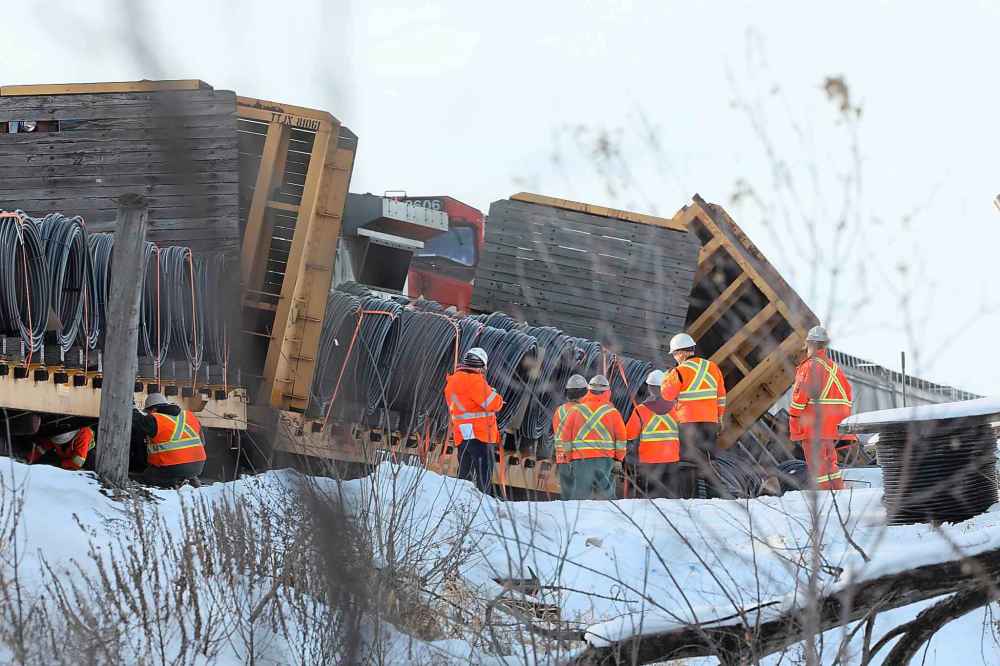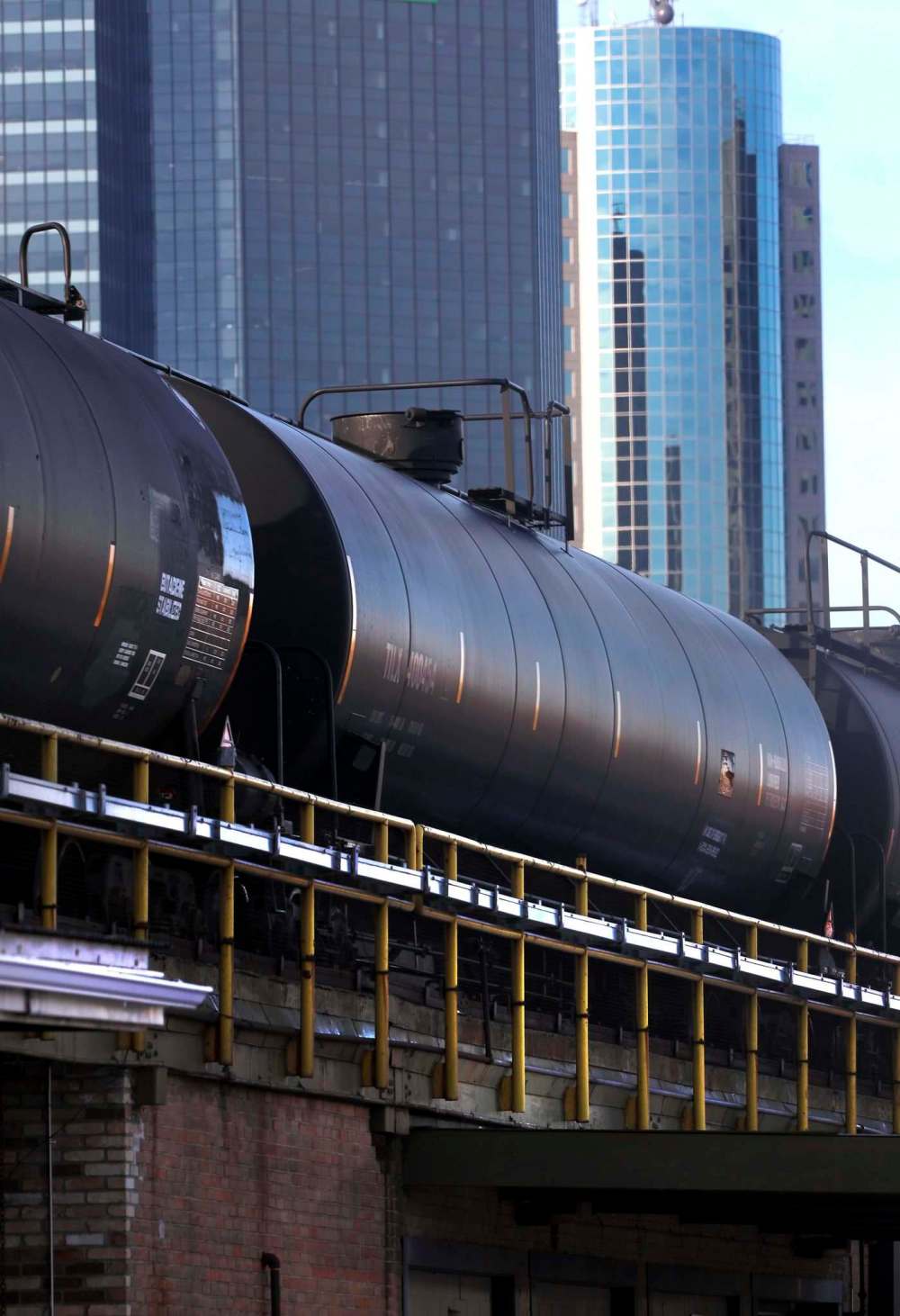Rail safety concerns require strict oversight
Read this article for free:
or
Already have an account? Log in here »
To continue reading, please subscribe:
Monthly Digital Subscription
$0 for the first 4 weeks*
- Enjoy unlimited reading on winnipegfreepress.com
- Read the E-Edition, our digital replica newspaper
- Access News Break, our award-winning app
- Play interactive puzzles
*No charge for 4 weeks then price increases to the regular rate of $19.00 plus GST every four weeks. Offer available to new and qualified returning subscribers only. Cancel any time.
Monthly Digital Subscription
$4.75/week*
- Enjoy unlimited reading on winnipegfreepress.com
- Read the E-Edition, our digital replica newspaper
- Access News Break, our award-winning app
- Play interactive puzzles
*Billed as $19 plus GST every four weeks. Cancel any time.
To continue reading, please subscribe:
Add Free Press access to your Brandon Sun subscription for only an additional
$1 for the first 4 weeks*
*Your next subscription payment will increase by $1.00 and you will be charged $16.99 plus GST for four weeks. After four weeks, your payment will increase to $23.99 plus GST every four weeks.
Read unlimited articles for free today:
or
Already have an account? Log in here »
Hey there, time traveller!
This article was published 08/01/2019 (2530 days ago), so information in it may no longer be current.
In the end, it comes down to trust.
Is it reasonable for governments, and the regulatory bodies they create and support, to trust profit-driven private industries to police themselves on matters of public safety and public accountability? The fiscal imperatives to contain costs and streamline bureaucratic processes often lead elected officials to conclude — perhaps wishfully — that the answer is yes.
The reality, as evidenced by numerous alarming revelations in Free Press reporter Dylan Robertson’s three-part series on rail safety and the largely ignored risks posed to Winnipeg by increased movement of oil-filled tanker cars through the city, is that in order to be granted and maintained, trust must be earned.

The government of Canada’s decision to entrust the railway industry with the duty to create its own safety rules and then rely on Transport Canada inspections to ensure they’re being followed becomes particularly troubling in light of what academic and author Bruce Campbell (The Lac-Mégantic Rail Disaster: Public Betrayal, Justice Denied) describes as a series of political decisions over the past three decades leading to a “systematic erosion” of railway safety rules.
Also of great concern is the fact the volume of hazardous goods — most notably crude oil — being transported by rail through major metropolitan centres such as Winnipeg has increased exponentially, as tanker-car shipments of oil to the U.S. Midwest, on routes that include the lines running through this city, have reached nearly 2.5 million barrels per month.
In Canada, any discussion of rail safety and oil transport will inevitably circle back to the 2013 derailment in Lac-Mégantic, Que., which killed 47 people and destroyed more than 30 buildings in the town’s centre. Manitoba Premier Brian Pallister has rightly pointed out that Manitoba’s flat terrain makes the likelihood of such a tragedy, involving a runaway collection of unbraked cars on a downhill slope, unlikely in this province, but the complexity and number of potential failure points in railway operation create numerous other possibilities for disaster.
And as the Free Press series laid out in extensive detail, issues ranging from inadequate training and staffing of inspection personnel to mishandled or ignored warnings to operation of trains and other equipment by overtired staff who have been unable to take mandated rest breaks have greatly increased the risk of a mishap.
Railway officials and federal Transport Minister Marc Garneau contend that safety is the industry’s No. 1 priority and that Canada’s rail system has become much safer in the half-decade since Lac-Mégantic. Whether that’s true remains a matter of statistical interpretation, but the numbers don’t lie when it comes to quantifying the volume of crude oil being moved by rail through heavily populated Canadian communities.

There is no small irony, of course, to the fact rail transport of crude — which has fairly been described as a de-facto oil pipeline — continues to increase with very little scrutiny at the same time Canada is in the grips of a heated and seemingly unresolvable debate over the construction of actual oil pipelines. In the seemingly ceaseless discussions of such initiatives as Trans Mountain, Energy East and Keystone XL, environmental concerns and safety considerations have been front-of-mind. When it comes to rail transport of oil, then, how can a safety system based on trust be good enough?
Trust is an essential part of any functional relationship. But when it’s misplaced, the results have the potential to be calamitous.












